It’s not so difficult to figure out you have hard water when you start struggling with mineral crust or soap scum buildup on your showerheads. One of the best solutions is treating it with a water softener.

However, installing a home water softener might seem like an expensive and daunting solution to your hard water problems. But understanding what a water softener is and how it works helps get long-lasting results without breaking the bank.
Sadly, there are different water softener styles from brands, making the decision process a lot more challenging. In this article, we’ll discuss everything about water softeners and their working principle.
Choose a System by sediment you want to remove:
- Water Softeners that remove Iron
- Water Softeners that remove Arsenic
- Water Softeners that remove Chlorine
- Upflow Water Softeners
- Dual Tank Softeners
Types of Water Softener Systems
Ion-Exchange Water Softeners (Salt-Based)
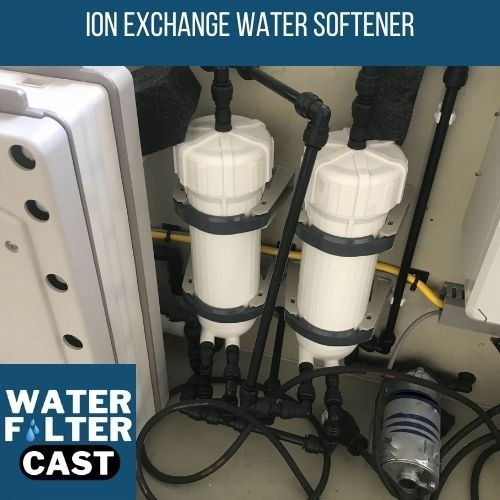
Salt-based water softeners have been the go-to for many years. They provide soft water at high rates of flow to the whole house. This system features a resin to attract magnesium and calcium minerals in your water supply and replace the hard minerals with sodium ions using an ion-exchange process.
This system requires maintenance. They offer a long-lasting solution to water hardness, but it’s important to regenerate the resin when it’s depleted of sodium ions.
Salt-free Water Softeners
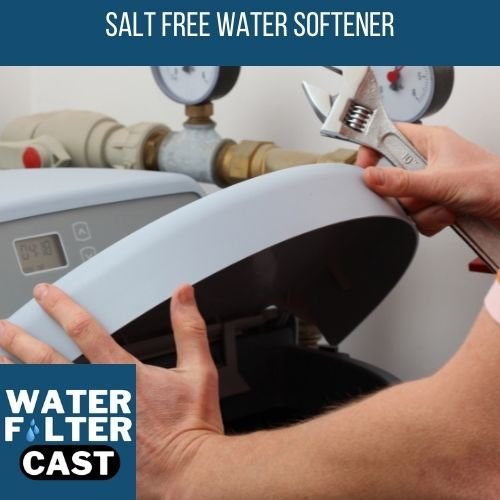
Unlike ion-exchange systems, the salt-free models do not need salt for regeneration, which means easy maintenance. However, they feature a different working principle. Salt-free water softeners neutralize the hard minerals, ensuring they do not get sticky together to create the building resulting in hard water.
Further, this system comes with a hefty price tag, but they are cheap and hassle-free to run in the long run. Even better, you don’t have to sacrifice much space like the ion-exchange water softener.
Portable Water Softeners
If you need to have soft water on the go, then portable water softeners are your best bet. They are ideal for travel trailers or RVs travelers. They do not run on electricity and require less maintenance since you don’t have to regenerate often.
When it comes to regenerating the portable water softener, all you need is a small amount of table salt. Also, there’s no need to get your toolbox for regenerating the system. However, keep in mind that the water flow rate is lower compared to the other types discussed above.
Showerhead Water Softeners
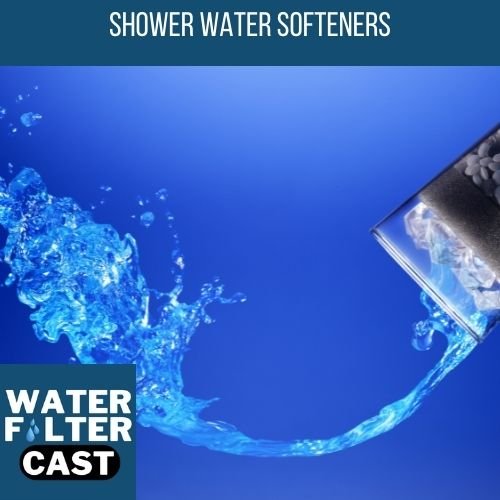
Water softeners, especially whole-house models, can be a great investment. If you are not looking to pay that salty price, you should consider a shower head water softener. They are affordable, and you won’t be missing out on performance.
Showerhead versions deliver soft water to make your skin and hair feel healthy and hydrated. Also, you don’t have to deal with soap scum or hard water spots on doors and shower walls. In addition, they are easy to install, maintain and replace. Some models are designed to fortify your water using vitamin filters.
Reverse Osmosis Water Softeners
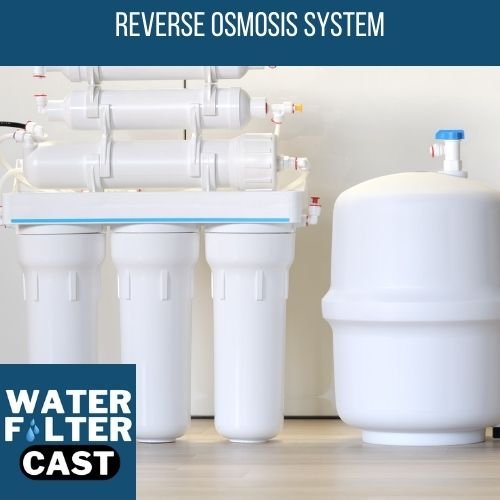
This system is more than a water softener. It’s designed to remove not only the hard minerals but other contaminants. Some models include features to remineralize your water with essential minerals to deliver healthy drinking water. Also, they usually come with their own faucet to deliver soft, purified water.
A thing of note, Reverse Osmosis water softeners can be expensive and only delivers soft water at a faucet, but they also have their own advantages. See my reviews of Reverse Osmosis Systems.
Magnetic Water Softeners
This is the latest and newly sought-after water softener on the market. These systems, like salt-free systems, do not remove the hard minerals but prevent them from sticking together, which makes the magnesium and calcium soluble.
The magnetic water softeners are touted as an alternative option for people looking to enjoy a supply of soft water without breaking the bank. This system is hassle-free to install and does not require you to cut your pipes.
This product is installed around your existing pipes, which creates a magnetic field to keep the positively charged hard minerals from bonding together.
How Do I Know If I Need a Water Softener?
If you often find soap scum in your house, your towels are stiff and hard, or it’s challenging to get a decent sudsy lather in your bathroom, then it’s likely that the problem is the hard minerals in the water.
A common misconception is that only private wells need a water softener because it supplies hard water. Regardless of the degree of hardness, hard water can have a negative impact on your home. City water does contain hard minerals, which means your tap can be delivering hard water.
Municipal water is mainly treated to remove impurities but is not obligated to neutralize or remove hardness minerals because they might not be dangerous to your health. For homeowners with a private well, you might want to consider owning a water filtration system to improve your water quality.
Also, it’s best to get your water tested by your local water treatment expert to determine the degree of hardness and figure out the best water softener for a soft water supply.
How Do Water Softeners Work?
There are several types of water softeners with different mechanisms. However, the process is always aimed at either removing or neutralizing the hardness minerals.
The most common working principle for water softeners is ion exchange. The ion exchange features a bed of spherical resin made from polystyrene containing sodium ions. As the hard water goes through the resin beads, the calcium and magnesium are trapped while the sodium ion is released into the water.
Other mechanisms require neutralizing the hardness mineral by preventing them from bonding, which makes them soluble. Thus, you don’t have to deal with soap cum, stiff towels, and others.
The Benefits of Water Softening Systems
Get rid of hard water stain
No more using lemon to clean limescale. Also, you don’t have to deal with spot marks or soap scum marks on taps and sinks. Thus, saving your effort, time, and money.
Scale-Free Pipes
Hard water causes scale buildup that will result in clogged pipes. For extreme-degree hard water supply, the buildup scale might cause permanent damage to plumbing.
Residue-Free Appliances
Using any of the home water softeners helps prevent hard water from having an adverse effect on your laundry machines and dishwasher. The scale buildup lowers the efficiency of your machine and shortens the lifespan of your appliances such as water heaters, ice makers and coffee machines.
Smoother Hair and Skin
Hard water contains lots of minerals, which depletes your skin’s natural oil. This results in dryness, irritated and itchy skin. Furthermore, soft water helps maintain a balanced pH level, unlike hard water, making your hair feel frizzy, brittle, and dry.
Softer Clothes
Washing your clothes in hard water leaves mineral deposits that fade the clothes and make them dingy. Detergents dissolve more effectively in soft water, which means you don’t have to use lots of detergents or use fabric softeners.
Best Water Softener Brands
Fleck
Fleck is owned by Pentair and it’s highly sought after by many homeowners. Fleck offers the best-metered control valves out there.
Whirlpool
Whirlpool is a top American multinational brand known for offering top-of-the-line home appliances, and water softening systems are no exception.
They offer some of the best water softeners on the market today without the hefty price tags.
GE
GE Water Softener offers high-quality products touted to save up to 34% water and 50% detergent during the regeneration process.
Each product from this brand features smart technology and sediment filters, which makes them a premium choice.
Pelican
Pelican offers a wide range of eco-friendly water filter systems and water softener that delivers long-lasting benefits.
Aquasana
This award-winning brand produces a high-quality water softener that removes most of the contaminants, including bacteria, iron, lead and many more from water.
Aquasana equips its product with a healthy and safe water softening system.
Culligan
Culligan has an extensive collection of cutting-edge products, including water softeners, bottled water and water filtration systems.
This outstanding water treatment brand is popular in Canada and the United States. Their products are suitable for both home and commercial purposes.
Kinetico
Kinetico is a favorite brand out there. They invented the twin-tank, demand-operated water softening system to deliver better efficiency and performance. Kinetico made it possible to soften hard water without electricity.
Conclusion
In this post, I’ve discussed the types of water softeners. Some of them are best for your whole house, while others offer soft water at your faucet or shower. Above all, I hope the working principles explained, in one of the sections, help you make a better decision.
Learn More About Water Softeners
Learn more in our water softener blog.




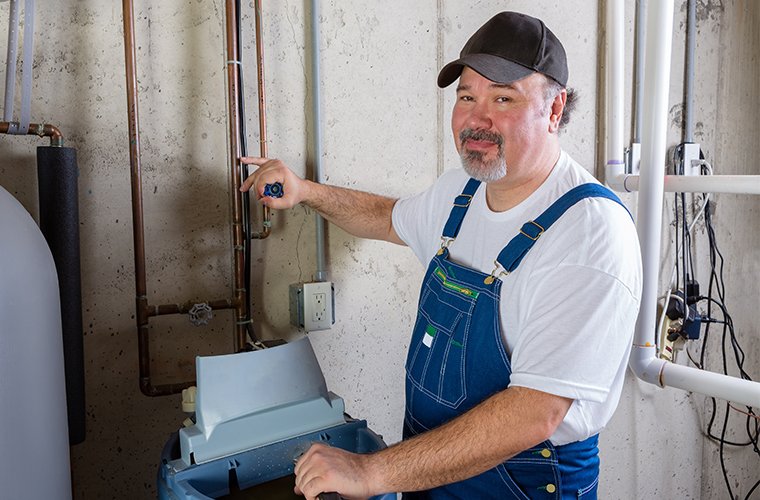

![Best Salt-Free Water Softeners - [Reviews - 2023 Edition] 6 Best salt free water softener](https://waterfiltercast.com/wp-content/uploads/2020/09/Best-salt-free-water-softener.jpg)
